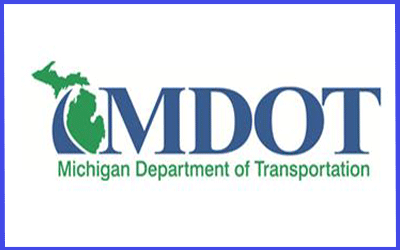
Governor Whitmer Makes Appointments to Boards and Commissions
LANSING, Mich. — Today, Governor Gretchen Whitmer announced appointments to the following boards and commissions: Mackinac Island State Park Commission; Michigan Veterans’ Trust Fund Board of Trustees; Michigan Veterans’ Memorial Park Commission; Michigan Domestic and Sexual Violence Prevention and Treatment Board; Child Lead Exposure Elimination Commission; Human Trafficking Health Advisory Board; Human Trafficking Commission; Regional Transit Authority Board of Directors; Michigan Arts and Culture Council; Michigan Trails Advisory Council; Child Abuse and Neglect Prevention Board; School Safety and Mental Health Commission; Early Childhood Investment Corporation Executive Committee; Michigan Public School Employees Retirement System Board; Certificate of Need Commission; Michigan Interagency Council on Homelessness; State Police Retirement Board; Michigan Soybean Committee; Board of Health and Safety Compliance and Appeals; Commission on Middle Eastern American Affairs; Public Health Advisory Council; Organized Retail Crime Advisory Board; Michigan Asparagus Advisory Board; and the Michigan Sentencing Commission.
Mackinac Island State Park Commission
Marlee Brown, of Mackinac Island, is the co-owner of Arnold Freight and a professional artist. Brown holds a Bachelor of Arts in history and political science from the University of Michigan. Marlee Brown will be reappointed as a resident of Mackinac Island for a term commencing April 13, 2025, and expiring April 12, 2031.
Liz Boyd, of Lansing, is the principal at Liz Boyd Public Relations. Boyd holds a Bachelor of Arts in journalism and a Master of Arts in advertising from Michigan State University. Liz Boyd will be appointed as a Democrat for a term commencing April 13, 2025, and expiring April 12, 2031. Boyd succeeds Rachel Bendit, whose term is expiring.
The Mackinac Island State Park Commission was formed in 1895 and is responsible for all aspects of managing Mackinac State Historic Parks. The Commission retains and exercises its authority and responsibility for developing the mission, goals, policies, objectives and direction for the unique properties under its jurisdiction.
These appointments are subject to the advice and consent of the Senate.
Michigan Veterans’ Trust Fund Board of Trustees
Paul McIvor, of Yale, is the former state commander of the Veterans of Foreign Wars, a former Yale city councilmember, and a retired teacher. During his enlistment, McIvor served as an engineer for the United States Army. Paul McIvor is reappointed as the representative of the Veterans of Foreign Wars for a term commencing April 10, 2025, and expiring February 25, 2028.
Gregory Spight, of Detroit, is a maintenance coordinator at Corpus Christi Catholic Church in Detroit. Spight is also a Vietnam Veteran of the 1st Infantry Division and a member of the American Legion Department of Michigan, serving as First Vice Commander at Coleman A. Young Post 202. Spight attended Wayne County Community College and the University of Detroit Mercy. Gregory Spight is appointed as the representative of the American Legion for a term commencing April 10, 2025, and expiring February 25, 2028. Spight succeeds James Wallace, whose term has expired.
Ramiro “Ray” Lopez, of New Boston, is a former electrician at the Ford Motor Company. Lopez previously served as the Vetrans of Foreign Wars Department of Michigan state commander. Lopez holds an electrical certification from Henry Ford Community College. Romiro Lopez is appointed as an independent member who may or may not be a member of one or more congressionally chartered veteran’s organizations, but who shall not represent any congressionally chartered veteran’s organization of which they are a member for a term commencing April 10, 2025, and expiring February 25, 2026. Lopez succeeds Gregory Spight, whose term has expired.
The Michigan Veterans’ Trust Fund was created in 1946 from $50 million in postwar reserve funds to provide grants for the emergency needs of veterans. The Michigan Veterans’ Trust Fund Board of Trustees governs grant policies and adjudication, county committee appointments, and expenditure from trust earnings.
These appointments are not subject to the advice and consent of the Senate.
Michigan Veterans’ Memorial Park Commission
Floyd Crawford, of Baraga, is a veteran of the United States Marine Corps and an on-call elder nutritional program driver for the Keweenaw Bay Indian Community. Floyd Crawford is appointed as a member of the general public for a term commencing April 10, 2025, and expiring December 18, 2026. Crawford succeeds Danny Craig, whose term has expired.
Gregory Havrilcsak, of Frankenmuth, is a lecturer on United States history, world civilizations, and the American military experience at the University of Michigan – Flint. Havrilcsak holds a Bachelor of Arts in history from the University of Michigan and a Master of Arts in history from Oakland University. Gregory Havrilcsak is reappointed as a member of the general public for a term commencing April 10, 2025, and expiring December 18, 2027.
Robert Price, of Pinckney, is a United States Army veteran and the former director of veteran outreach at the Michigan Department of Military Affairs. Price holds a Bachelor of Arts in criminal justice from Saginaw Valley State University and a Master of Arts in global organizational management from Ashford University. Robert Price is reappointed as a member of the general public for a term commencing April 10, 2025, and expiring December 18, 2027.
The Michigan Veterans’ Memorial Park Commission advises on the development, management, and maintenance of the Vietnam Veterans’ Memorial Park in Lansing, the operation of programs exclusive to the park, and the security services and enforcement of rules for the care and preservation of the park.
These appointments are not subject to the advice and consent of the Senate.
Michigan Domestic and Sexual Violence Prevention and Treatment Board
Judge Cynthia Ward, of Lansing, is a judge for the 54-A District Court in Ingham County. Judge Ward holds a Bachelor of Arts in economics from Rutgers University and a Juris Doctor from the Villanova School of Law. Judge Cynthia Ward is appointed as a member with experience in an area related to the problems of domestic or sexual violence for a term commencing April 10, 2025, and expiring December 4, 2027. Judge Ward succeeds Elizabeth Hines, whose term has expired.
Rebecca Shiemke, of Ann Arbor, is a managing attorney at the Michigan Advocacy Program and has worked for over thirty years as an attorney in the domestic violence field. Shiemke holds a Bachelor of Arts in sociology and women’s studies from Albion College and a Juris Doctor from Wayne State University Law School. Rebecca Shiemke is reappointed as a member with experience in an area related to the problems of domestic or sexual violence for a term commencing April 10, 2025, and expiring December 4, 2027.
The Michigan Domestic and Sexual Violence Prevention and Treatment Board coordinates and monitors programs and services for the prevention of domestic and sexual violence and the treatment of victims of domestic and sexual violence. The Board administers grants awarded under the Violence Against Women Act, the Family Violence Prevention and Services Act, and other governmental and non-governmental grants.
These appointments are subject to the advice and consent of the Senate.
Child Lead Exposure Elimination Commission
Diane McCloskey, of Detroit, is the executive director of CLEARCorps Detroit, a non-profit organization dedicated to lead poisoning prevention through its programs, education, outreach, and policy work. Diane McCloskey is appointed as a member representing an organization that focuses on lead exposure for a term commencing April 10, 2025, and expiring December 14, 2026. McCloskey succeeds Paul Haan, who has resigned.
The Child Lead Exposure Elimination Commission focuses on implementing the recommendations of the former Child Lead Poisoning Elimination Board and monitoring the state’s efforts to eliminate lead exposure in children. The Commission acts in an advisory capacity to the Governor and department director to coordinate and collaborate with all levels of government and stakeholders regarding programs and policies related to the elimination of child lead exposure.
This appointment is not subject to the advice and consent of the Senate.
Human Trafficking Health Advisory Board
Dashamir Pettway, of Dearborn, is the chief executive officer and founder of I Am Living LLC. Pettway holds an associate degree in social work from Macomb Community College. Dashamir Pettway is appointed as a human trafficking survivor for a term commencing April 10, 2025, and expiring December 31, 2028. Pettway succeeds Rodica Richmond, whose term has expired.
The Human Trafficking Health Advisory Board was established to collect and analyze information concerning medical and mental health services available to survivors of human trafficking, identify state, federal and local agencies that are involved with issues relating to human trafficking, and coordinate the dissemination of information concerning medical and mental health services available to survivors of human trafficking in this state. The Board may establish a program to improve public awareness of medical and mental health services available to survivors of human trafficking in this state.
This appointment is not subject to the advice and consent of the Senate.
Human Trafficking Commission
Leslie King, of Grand Rapids, is the founder and president of Sacred Beginnings Transitional Homes, which offers housing and support services for victims of human trafficking. King holds an associate degree in social work from Grand Rapids Community College. Leslie King is reappointed as an individual who has survived human trafficking for a term commencing April 10, 2025, and expiring March 1, 2027.
Hon. Lisa McCormick, of Dimondale, is the chief circuit judge pro tempore on the 30th Judicial Circuit Court in Ingham County. McCormick holds a Bachelor of Arts in legal studies from the University of Pittsburgh and a Juris Doctor from Thomas Cooley Law School. Lisa McCormick is reappointed as a circuit court judge who serves in a family court for a term commencing April 10, 2025, and expiring March 1, 2027.
The Human Trafficking Commission is designed to identify sources for grants that will assist in examining and countering human trafficking, fund research programs to determine the extent and nature of human trafficking in this state, and provide information and training to police officers, prosecutors, court personnel, social services personnel, and other individuals.
These appointments are not subject to the advice and consent of the Senate.
Regional Transit Authority Board of Directors
David Massaron, of Detroit, is vice president of General Motors’ Infrastructure and Corporate Citizenship group. Previously, Massaron was General Motors’ chief economic development and real estate officer, senior vice president and chief financial officer at Wayne State University, and budget director for the State of Michigan. Additionally, Massaron serves on the boards of the Detroit Riverfront Conservancy, the Downtown Detroit Partnership, the Detroit Regional Partnership, and the Hudson Weber Foundation. Massaron holds a Bachelor of Arts in political theory and constitutional democracy from Michigan State University and a Juris Doctor from William and Mary Law School. David Massaron is reappointed as the governor’s representative for a term commencing April 10, 2025, and expiring March 31, 2028.
Regional Transit Authority Board of Directors’ mission is to manage and secure transportation resources that enhance mobility options, improve quality of life for residents, and increase economic viability in the region.
This appointment is not subject to the advice and consent of the Senate.
Michigan Arts and Culture Council
Dr. Noel Jackson, of Trenton, is the president and founder of the Downriver Youth Performing Arts Center. Additionally, Jackson is a practicing dentist and the owner and founder of Jackson Snyder Parker Dental Practice. Jackson is also a member of the Rotary Club of Trenton, vice president of the Trenton Business Association, and a past member of the Trenton Educational Foundation board. Jackson holds a Bachelor of Arts in history from Michigan State University and a Doctor of Dental Surgery from the University of Detroit Dental School. Dr. Noel Jackson is appointed for a term commencing April 10, 2025, and expiring September 1, 2027. Jackson succeeds Robert Womack, whose term has expired.
The Michigan Arts and Culture Council serves to encourage, develop, and facilitate an enriched environment of creative and cultural activity in Michigan. The Council envisions a Michigan where every citizen celebrates the state’s cultural treasures and arts, and cultural experiences are accessible to all its citizens.
This appointment is not subject to the advice and consent of the Senate.
Michigan Trails Advisory Council
Shannon Bessette, of Hastings, is the owner of three Michigan dealerships: US27 Motorsports, Capitol Harley-Davidson and Motorsports, and Battle Creek Harley Davidson. Bessette holds a Bachelor of Arts in political science, communication, and history from Aquinas College. Shannon Bessette is appointed to represent ORV and snowmobile owners for a term commencing April 10, 2025, and expiring January 17, 2029. Bessette succeeds Mark Losey, whose term has expired.
The Michigan Trails Advisory Council was formed with the enactment of Public Act 451 of 1994. The purpose of the council is to advise the Department of Natural Resources and The Governor on the creation, development, operation, and maintenance of motorized and nonmotorized trails in the state, including snowmobile, biking, equestrian, hiking, offroad vehicle and skiing trails.
This appointment is not subject to the advice and consent of the Senate.
Child Abuse and Neglect Prevention Board – “Children Trust Michigan”
Chandra Madafferi, of Lansing, is the president of the Michigan Education Association. Madafferi holds a Bachelor of Science in special education, cognitive impairments, and therapeutic recreation from Central Michigan University and a Master of Education in special education from the University of Michigan Dearborn. Chandra Madafferi is appointed as a member representing organized labor for a term commencing April 10, 2025, and expiring December 19, 2027. Madafferi succeeds Paula Herbart, whose term has expired.
The Child Abuse and Neglect Prevention Board, also known as Children Trust Michigan, was established by the Michigan Legislature in 1982 and serves as a voice for Michigan’s children and families and promotes their health, safety, and welfare by funding effective local programs and services that prevent child abuse and neglect.
This appointment is subject to the advice and consent of the Senate.
School Safety and Mental Health Commission
Dr. Daveda Colbert, of Farmington Hills, is the superintendent of the Wayne Regional Education Service Agency. Previously, Colbert was superintendent of Oak Park Schools and assistant superintendent for Detroit Public Schools. Colbert holds a Bachelor of Science in accounting and business administration from Southern University at New Orleans, a Master of Arts in teaching from Wayne State University, and a Doctor of Philosophy in education from Oakland University. Dr. Daveda Colbert is appointed as a member with a background in school administration for a term commencing April 10, 2025, and expiring April 9, 2029.
Dr. Alyse Ley, of Okemos, is the associate chair of education in the Michigan State University Department of Psychiatry and the director of Prevent to Protect, the Adolescent Targeted Violence Prevention Program at Michigan State University. Ley holds a Bachelor of Science in psychology, a Doctor of Osteopathy from Michigan State University, and completed her residency in child and adolescent psychiatry at the University of Michigan. Dr. Alyse Ley is appointed as a member with a background in school threat assessments for a term commencing April 10, 2025, and expiring April 9, 2029.
Dr. Nasuh Malas, of Ann Arbor, is the division director and service chief for child and adolescent psychiatry in the University of Michigan’s Department of Psychiatry. Malas holds appointments as a clinical associate professor in the Department of Psychiatry, where he is associate chair for child and adolescent psychiatry, and the in Department of Pediatrics at the University. Malas holds a Bachelor of Science in medical microbiology, Master of Public Health, and Doctor of Medicine from the University of Wisconsin. Dr. Nasuh Malas is appointed as a member with an experience in the provision of inpatient treatment to children under age 18 for a term commencing April 10, 2025, and expiring April 9, 2029.
|








